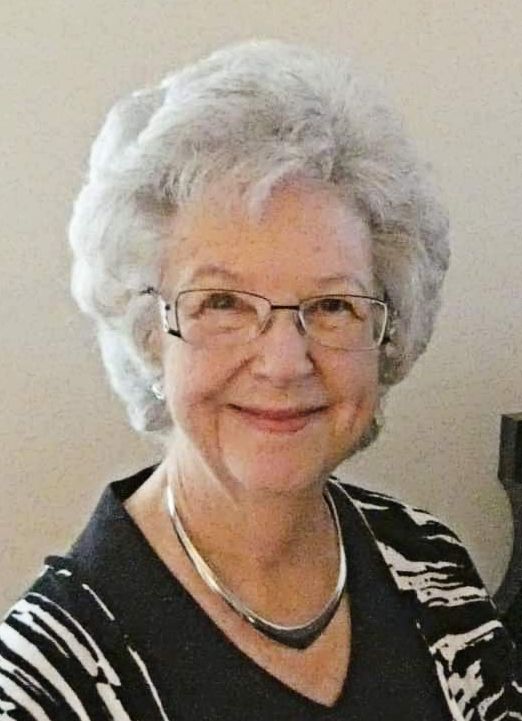

Susan Poelchau
Interview with Susan Poelchau
By Mary Williams
Susan: I was born and raised in Dallas, on Asbury Ave by SMU. When my older sister and I were young, we received a piano and my sister began taking lessons from a young teacher down the street named Frances Stuart. My big sister would come home and practice her pieces and after she had left the piano I would pick them out by ear, which of course annoyed her greatly – at any rate, it was decided that I ought to have lessons too so I started with Frances, who will tell you that she “looked for every horse piece ever written” to keep me interested, since I was such a horse nut!
Mary: Where did you go to school and what was the best part of it?
Susan: Well, singing in the Lads and Lassies choir at Highland Park and getting to be a dancer in one of the corny old Rudolph Friml musicals was fun! I went on to major in music education at Texas Tech, where I met Mary Jeanne van Appledorn, and later got a masters in theory at The University of Texas under Janet McGaughey – two strong and unique teachers who had a great influence on me.
Mary: You lived in Germany for quite a while. How did that happen and what made you come back to Dallas?

Susan:
My husband took a job as a geologist at a research institute in northern Germany by Cologne in 1987, so I followed with three school-age children. None of us spoke German when we got there, but we all finally learned, as the children were immersed in a local German school. Now I can read and converse but my grammar never got totally polished, so I ask for help when I have to write something. I was able to continue with choirs, handbells and accompanying there as well as teaching piano and ESL. In Germany I got really good instruction in vocal technique and am grateful to be a better singer now than I ever was in youth. We left there when my husband retired from his job in 2000. We never expected to be there 13 years!
Mary: You play several instruments. Tell us about how you got started with them.
Susan: When I met my husband he was an enthusiastic recorder player so I started playing with members of the Dallas Recorder Society just to be social. This led to harpsichord continuos playing and the mysteries of figured bass and Baroque style. Renaissance music has always been a love of mine. In that era, educated people and especially professional musicians were expected to play several instruments so I suppose it was inevitable that I would end up playing a stringed instrument as well – the viola da gamba – which I love. I’m going to pass on the loud buzzy reed instruments and brasses, though!
Mary:You’ve been a wonderful president for the past new years and have now taken on the chairmanship of the Library Concert Series. Thanks for your dedication to Mu Phi and this chapter. What have you contributed and taken away from the President’s job?
Susan: Thank you! It is easy to be President with such an outstanding group of members as Dallas Alumni Chapter enjoys, and I am glad to be able to pay back in some measure all the benefits I’ve received from membership in my collegiate chapter, Epsilon Pi at Texas Tech, and from the members of San Diego and Dallas alumni chapters. I tried as President to streamline the mass of information that the President receives and move through the chapter business meetings in a brisk way that allowed everyone to speak but not get mired in the details. I’ve taken away a deepened respect for the creative variety and energy found in a group like Dallas Alumni.
Mary: What do you want to do with the Library Series?
Susan: To continue it as long as feasible, with help from the Committee. I think it’s a great public service opportunity. I am amazed at the quality and number of performers who want to appear on the Series and I am very happy with the cooperation we get from the Library staff. On the other hand, as Dallas continues to spread further north and new ensembles and concerts crop up, competing for publicity and an ever-dwindling classical music audience, it might become even more of a challenge to convince people that a downtown recital is a good way to spend Sunday afternoon. Performers do have to bring their own audience if they want a crowd. Perhaps the completion of the new Arts District will shift some focus back downtown and there might be a possibility for some sort of link.

Susan: Well, I’m an enthusiastic if not very expert bird-watcher and I do enjoy the outdoors. Since my husband retired we enjoy traveling – this year we put 10,000 miles on our car in June alone – but there’s always a stop to look at the local bird life. In Germany this September I dragged our family up to the Baltic Sea, where we huddled freezing in a windy blind watching the migrating cranes gather to roost. They were good sports about it, but I didn’t push my luck by asking them to do it twice!
Mary: Anything else we should know about you?
Susan: Well, I have long had a desire to get back on a horse again, so maybe some day I’ll get up my nerve and do it!
Mary: Thanks so much, Susan! It’s been such a pleasure working with you on the Concert Series.
